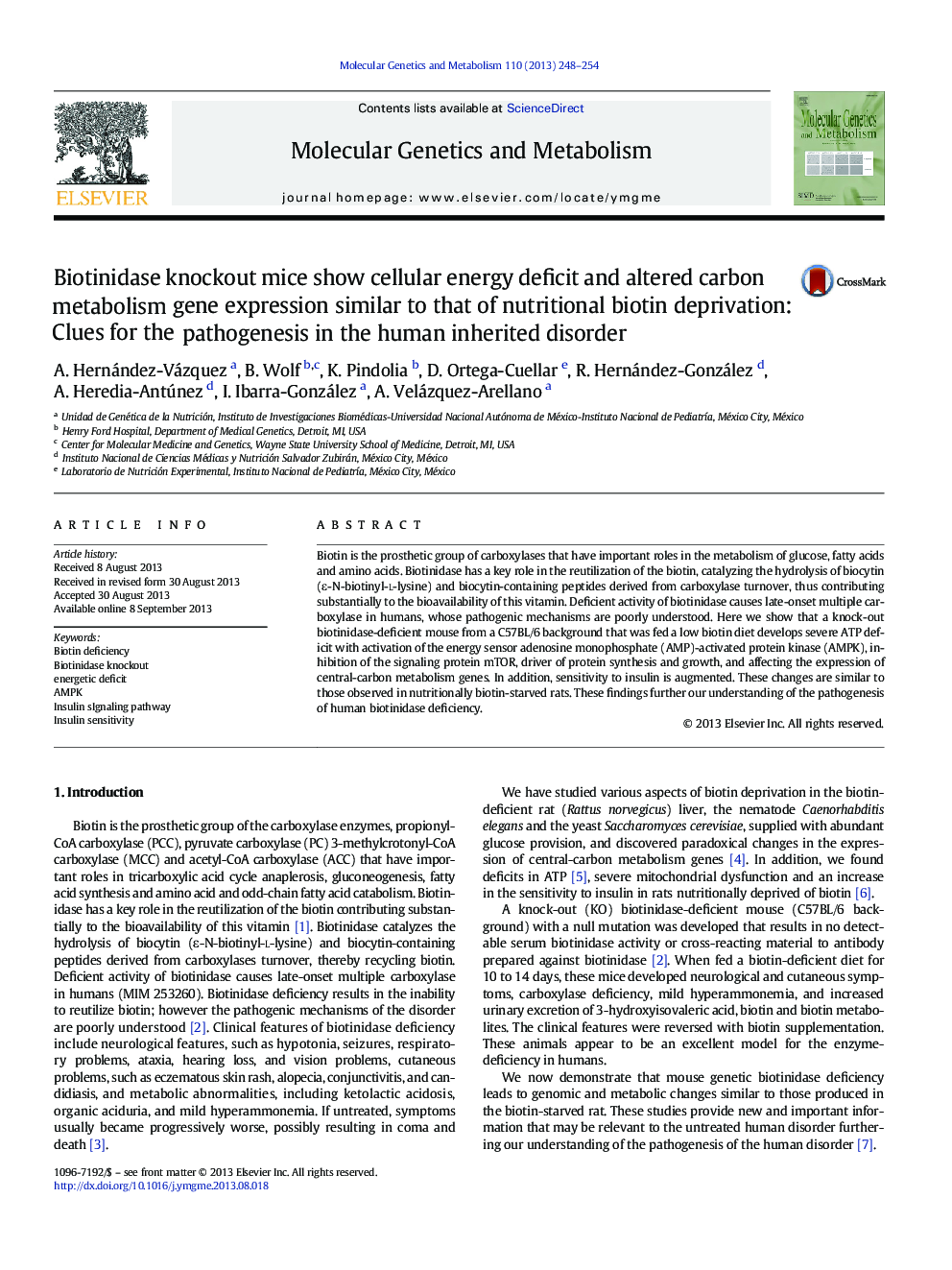| Article ID | Journal | Published Year | Pages | File Type |
|---|---|---|---|---|
| 10833186 | Molecular Genetics and Metabolism | 2013 | 7 Pages |
Abstract
Biotin is the prosthetic group of carboxylases that have important roles in the metabolism of glucose, fatty acids and amino acids. Biotinidase has a key role in the reutilization of the biotin, catalyzing the hydrolysis of biocytin (ε-N-biotinyl-l-lysine) and biocytin-containing peptides derived from carboxylase turnover, thus contributing substantially to the bioavailability of this vitamin. Deficient activity of biotinidase causes late-onset multiple carboxylase in humans, whose pathogenic mechanisms are poorly understood. Here we show that a knock-out biotinidase-deficient mouse from a C57BL/6 background that was fed a low biotin diet develops severe ATP deficit with activation of the energy sensor adenosine monophosphate (AMP)-activated protein kinase (AMPK), inhibition of the signaling protein mTOR, driver of protein synthesis and growth, and affecting the expression of central-carbon metabolism genes. In addition, sensitivity to insulin is augmented. These changes are similar to those observed in nutritionally biotin-starved rats. These findings further our understanding of the pathogenesis of human biotinidase deficiency.
Related Topics
Life Sciences
Biochemistry, Genetics and Molecular Biology
Biochemistry
Authors
A. Hernández-Vázquez, B. Wolf, K. Pindolia, D. Ortega-Cuellar, R. Hernández-González, A. Heredia-Antúnez, I. Ibarra-González, A. Velázquez-Arellano,
